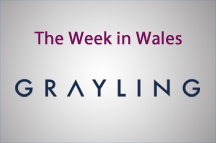 Every so often we have one of those weeks where there is just too much news. A week when the political news cycle is full of everything from long-term policy matters through to the outright ridiculous. This week was Wales’ turn.
Every so often we have one of those weeks where there is just too much news. A week when the political news cycle is full of everything from long-term policy matters through to the outright ridiculous. This week was Wales’ turn.
Starting with the serious, this week saw the publication of the long awaited Diamond Review into Higher Education finance. Begun by the last Welsh Government, the Review explored the way students are funded and how to get the balance right between loans and grants. This followed the former UK Coalition Government’s decision to place a far larger finance burden on individual students, and the resultant Welsh Government’s reaction that created an unsustainable grants system that is losing Wales around a quarter of a billion pounds a year. The core recommendations were that:
- All students should receive a minimal grant of £1,000 a year
- Means-tested support should provide up to £9,113 a year for living costs (average grant expected to be £7,000 based on household income levels)
- Loans would remain to cover tuition fees
- Should the new system prove to be "cost neutral" the savings should be put back into post-graduate, part-time and research support priorities
The Review was received positively, yet questions were quickly raised over how and when the Government were going to implement it. The general consensus was that the Government must not ‘cherry pick’ the recommendations to meet political needs, and instead develop a sustainable system which enables everyone who wishes to attend university to do so, regardless of their economic background. So far the Government has just endorsed the “underlying principles”.
 This week also saw the First Minister hold the first session of his grand “European Advisory Group”. Set up to consider the “challenges and opportunities arising from the UK’s withdrawal from the EU”, the Group immediately raised eyebrows within the ‘Cardiff Bay Political Bubble’ for its lack of demographic diversity. Furthermore, it was noted that only one of the 20 members openly supported Brexit. While everyone will be eager to learn what conclusions the Group draws and whether anyone will ever work out what Brexit actually means now that so many of its supporters have run away, one of the biggest unknowns remains what view it will hold on what to do with the National Assembly for Wales’ spare flagpole!
This week also saw the First Minister hold the first session of his grand “European Advisory Group”. Set up to consider the “challenges and opportunities arising from the UK’s withdrawal from the EU”, the Group immediately raised eyebrows within the ‘Cardiff Bay Political Bubble’ for its lack of demographic diversity. Furthermore, it was noted that only one of the 20 members openly supported Brexit. While everyone will be eager to learn what conclusions the Group draws and whether anyone will ever work out what Brexit actually means now that so many of its supporters have run away, one of the biggest unknowns remains what view it will hold on what to do with the National Assembly for Wales’ spare flagpole!
In a move which sits somewhere between a matter of international significance and fiddling while Rome burns (I’ll leave readers to decide where), Conservative Mohammad Asghar AM tabled a Statement of Opinion calling for a public consultation on what new flag to put up if/when the UK actually leaves the EU. While support was limited among Assembly Members, it would be hard to disagree that buying a new flag would provide a concrete way of spending some of that £350m a week we were all told about.
Finally this week also saw the accusation from long time Plaid Cymru member and activist Carl Clowes that in 1976 the Party accepted a £25,000 donation from then Libyan leader Muammar Gaddafi. The claim, which appears in Carl Clowes’ new autobiography (potentially available from several good bookshops in Wales), detailed that the donation was put into the Party’s general fund following a fact-finding visit to the country by Party representatives. Plaid responded that there is “absolutely no record or knowledge of any such donation being made to Plaid Cymru”, Welsh Labour reacted with predictable ‘shock’, and then the story went a bit quiet once social media had its fill of pictures of that time Tony Blair met him 2007. At the very least the story will be an unwelcome distraction for Plaid, given its record of having to fight off previous accusations of the Party’s early years.













